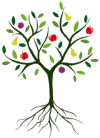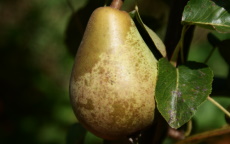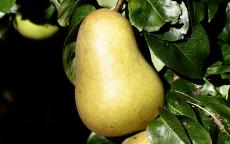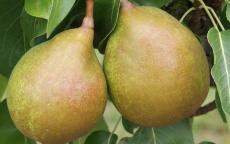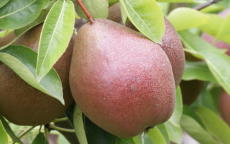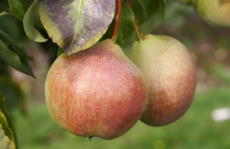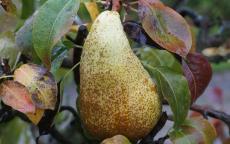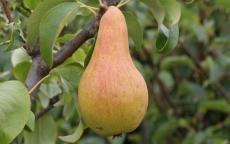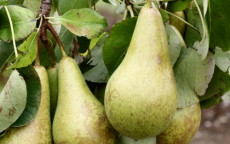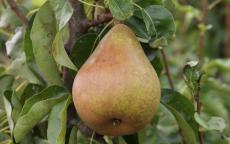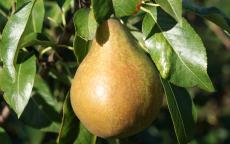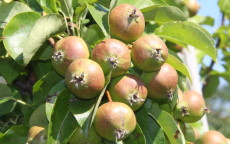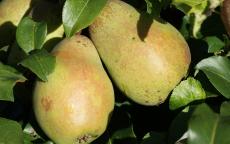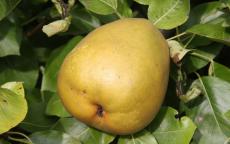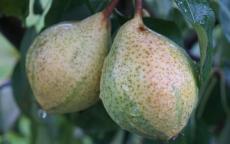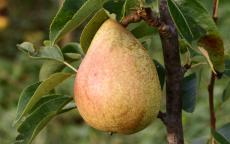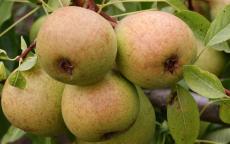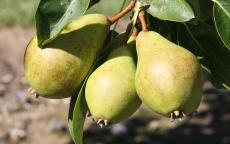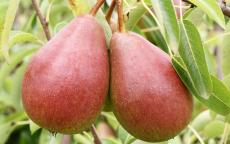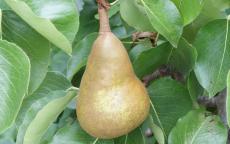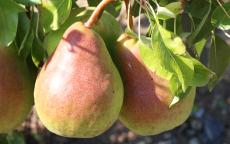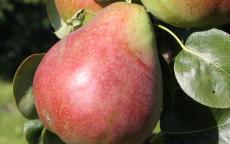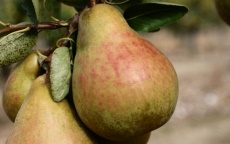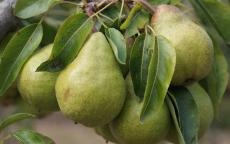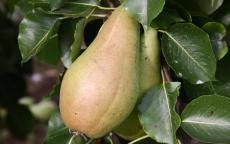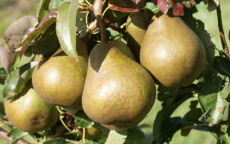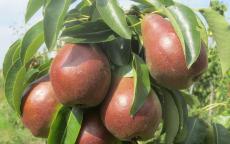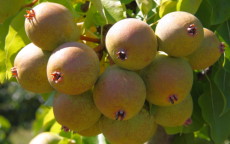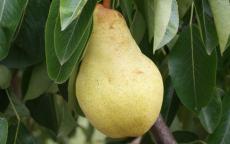- Sub-categories:
- Dessert pear trees23
- Cooking pear trees2
- Perry pear trees3
- See also:
- Apple trees195
- Apricot trees7
- Cherry trees28
- Medlar trees1
- Plum trees67
- Quince trees3
Pear trees
Pears are easy to grow and make a good complement to apples in the garden orchard. We can help you choose from our extensive range of pear trees.
Beth
An easy and reliable early-season pear, with a very good melting flavour.- Pick season: Early
- Self-fertile?: Not self-fertile
Beurre Hardy
A classic French pear with a very good flavour, but grows best in a warm sheltered situation.- Pick season: Late
- Self-fertile?: Not self-fertile
Beurre Superfin
A traditional French 19th century pear, widely considered one of the best for flavour.- Pick season: Late
- Self-fertile?: Partially self-fertile
Black Worcester
The oldest true English pear, 16th century or earlier. Ideal for stewed pears.- Pick season: Very late
- Self-fertile?: Not self-fertile
Catillac
A very old French culinary pear, dating back to the reign of Louis XIV.- Pick season: Late
- Self-fertile?: Not self-fertile
Celebration NUVAR®
Nuvar Celeberation is a large modern dessert pear.- Pick season: Late
- Self-fertile?: Not self-fertile
Concorde
A marriage of Conference and Comice - Concorde is easy to grow, heavy crops, excellent flavour.- Pick season: Late
- Self-fertile?: Partially self-fertile
Conference
Conference is a popular and reliable English pear, well-suited to the UK climate.- Pick season: Mid
- Self-fertile?: Self-fertile
Doyenne du Comice
Doyenne du Comice is arguably the best flavoured of all pears.- Pick season: Late
- Self-fertile?: Not self-fertile
Fondante d'Automne
An old fashioned French pear with a notably sweet flavour.- Pick season: Late
- Self-fertile?: Not self-fertile
Glou Morceau
A traditional 18th century Belgian pear with a notably rich sweet flavour.- Pick season: Late
- Self-fertile?: Not self-fertile
Gorham
A reliable early 20th century American pear, with a sweet creamy flesh.- Pick season: Mid
- Self-fertile?: Self-fertile
Humbug
Humbug is an unusual pear variety, the fruits have distinctive green and yellow stripes.- Pick season: Late
- Self-fertile?: Not self-fertile
Invincible
Invincible is a high quality pear which can also cope with difficult conditions.- Pick season: Mid
- Self-fertile?: Partially self-fertile
Josephine de Malines
A classic 19th century winter pear with a high quality flavour.- Pick season: Very late
- Self-fertile?: Not self-fertile
Louise Bonne of Jersey
An attractive red-flushed French pear variety with sweet melting flesh.- Pick season: Mid
- Self-fertile?: Not self-fertile
Merton Pride
One of the best English pears, with a notably juicy buttery flesh.- Pick season: Mid
- Self-fertile?: Not self-fertile
Moonglow
A high quality early season dessert and culinary pear, very resistant to fireblight.- Pick season: Early
- Self-fertile?: Not self-fertile
Obelisk®
A useful dwarf pear tree for small gardens, it grows with a tidy upright habit and is self-fertile.- Pick season: Late
- Self-fertile?: Self-fertile
Onward
Onward is high quality dessert pear, related to Doyenne du Comice but easier to grow.- Pick season: Mid
- Self-fertile?: Not self-fertile
Packham's Triumph
Perhaps the best known Australian pear, producing large quantities of small but sweet-flavoured pears.- Pick season: Late
- Self-fertile?: Not self-fertile
Pitmaston Duchess
Pitmaston Duchess is a traditional English dual-purpose, noted for the very large size of its pears.- Pick season: Late
- Self-fertile?: Not self-fertile
Santa Claus
As the name suggests, Santa Claus is a late ripening dessert pear which keeps until Christmas.- Pick season: Very late
- Self-fertile?: Not self-fertile
Sensation
A red-coloured sport of the popular Williams pear, with a similar good flavour.- Pick season: Early
- Self-fertile?: Not self-fertile
Williams
Williams is a classic English pear, also known as Bartlett, with good flavour and quite easy to grow.- Pick season: Early
- Self-fertile?: Partially self-fertile
How to choose Pear trees
Pears are perhaps a bit more demanding to grow than apples, but also maybe a bit less prone to fungal infections and diseases.
Like apples, most pears are not self-fertile, so either choose a self-fertile one (like Conference) or make sure there are other pear trees nearby to help with pollination.
Pages you viewed
- Cider apple trees
Tremlett's Bitter - Rowan trees
Asplenifolia
